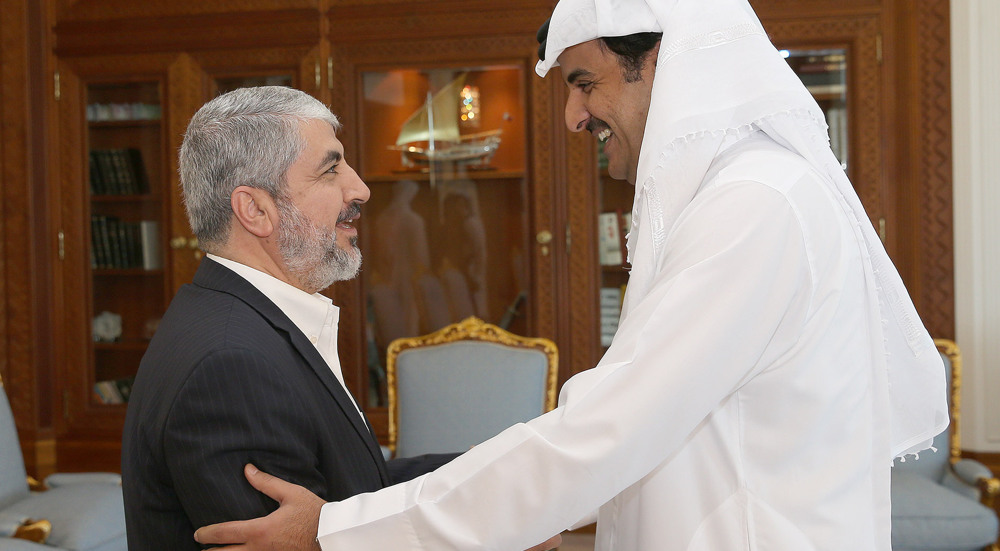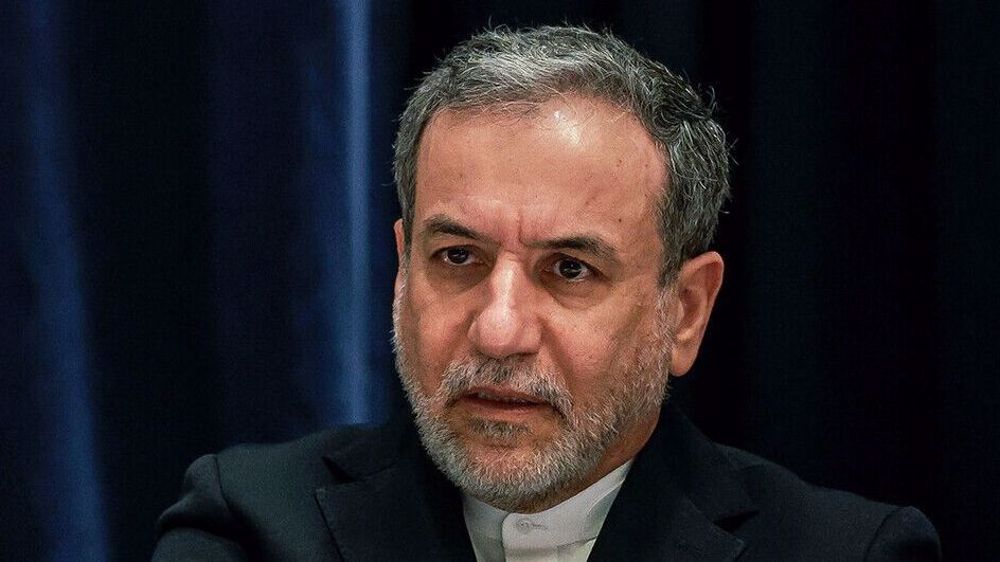Qatar launches new shipping services to Oman amid diplomatic row
Qatar has launched two new shipping services to Omani ports to allay concerns of food shortages in the gas-rich Persian Gulf kingdom in the wake of a recent move by a number of Arab countries to close their borders and airspace with Doha.
Qatar Ports Management Company (Mwani), a shareholding company established in 2009, announced on Sunday that the two new services would each run three times a week between Qatar's Hamad Port and the Omani ports of Sohar in the north and Salalah in the south.
Mwani posted a video on Twitter on Monday, which shows loaded Hansa Neuberg container ship arriving at Doha's Hamad Port from Oman's port of Sohar to a water-cannon welcome.
Typically, shipping containers destined for Qatar stop at Dubai's massive deep-water Jebel Ali port or in the Emirati capital of Abu Dhabi, before being put on smaller boats and heading to Doha.
Vessels leaving Qatari ports normally refuel ahead of their voyages at the UAE port of Fujairah, the Persian Gulf's largest ship-fuel or bunkering port.
This is while Abu Dhabi Petroleum Ports Authority on June 7 imposed a ban on international tankers and Qatar-flagged ships traveling to and from Qatar, preventing them from calling at ports in the UAE. The measure has left shipowners and charters scrambling to plan logistics for their vessels.
Qatari officials have told local media that there are sufficient food stocks, and supplies are being imported “in a routine manner from different sources.”
Iranian officials say the country is already sending at least 100 tonnes of food supplies to Qatar by plane every day.
Shahrokh Noushabadi, national flag carrier Iran Air's spokesman, was quoted by the domestic media as saying that at least five planeloads of fruits and vegetables had already been sent to Qatar.
Read more:

Meanwhile, Qatar's Central Bank said on Monday that banking transactions at home and abroad were continuing normally irrespective of the rupture of diplomatic relations between Doha and several Persian Gulf countries.
Central Bank governor Sheikh Abdullah bin Saud Al Thani, in a statement released on the state-run Qatar News Agency (QNA), brushed aside concerns over liquidity levels.
“The banking and banking transactions and procedures in the State of Qatar continue to be normal, both at the level of local financial transactions and between the Qatari banking sector and foreign banks,” the statement read.
It stressed that “the liquidity levels in the Qatari banking sector are good and meet all customer requirements.”
Saudi Arabia, the UAE, Egypt and Bahrain all cut off diplomatic ties with Qatar on June 5, after officially accusing it of “sponsoring terrorism.”
The administration of Saudi-backed and resigned Yemeni president Abd Rabbuh Mansur Hadi, Libya, the Maldives, Djibouti, Senegal and the Comoros later joined the camp in ending diplomatic ties. Jordan downgraded its diplomatic ties as well.
Qatar's Foreign Ministry announced that the decisions to cut diplomatic ties were unjustified and based on false claims and assumptions.
"Qatar has been the target of a systematic incitement campaign that promoted outright lies, which indicates that there was a prior intent to harm the state," the statement said.
Read more:
On June 9, Qatar strongly dismissed allegations of supporting terrorism after the Saudi regime and its allies blacklisted dozens of individuals and entities purportedly associated with Doha.
“The recent joint statement issued by the Kingdom of Saudi Arabia, Bahrain, Egypt and the UAE regarding a ‘terror finance watch list’ once again reinforces baseless allegations that hold no foundation in fact,” the Qatari government said in a statement.
Read more:
Jordan sentences former lawmaker for supporting Palestinian resistance
Basij volunteer forces hold massive drills in southwestern Iran
Israeli war criminals 'not welcome', US city says after ICC ruling
US vetoing of Gaza ceasefire resolution ‘disgraceful’: Iran’s UN envoy
VIDEO | IAEA adopts anti-Iran resolution tabled by E3
VIDEO | Iran's president urges Pope to help end Israel's onslaught in Gaza
Iran's senior legal official: ICC arrest warrant for Netanyahu ‘great victory'
Nov. 21: ‘Axis of Resistance’ operations against Israeli occupation














 This makes it easy to access the Press TV website
This makes it easy to access the Press TV website